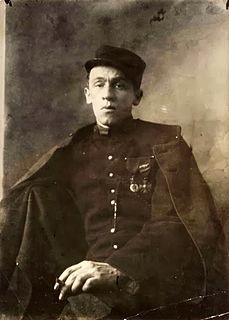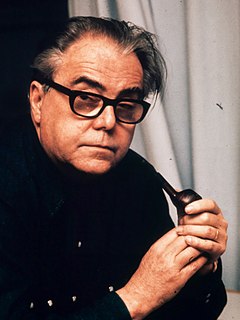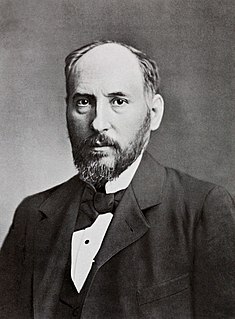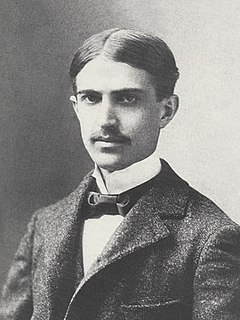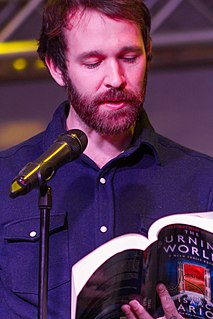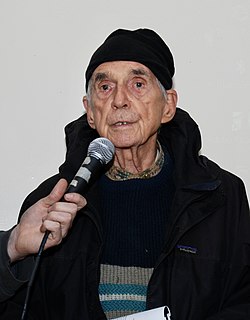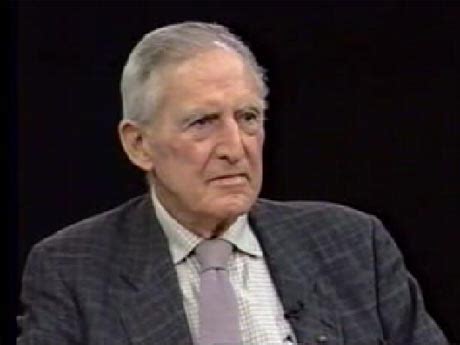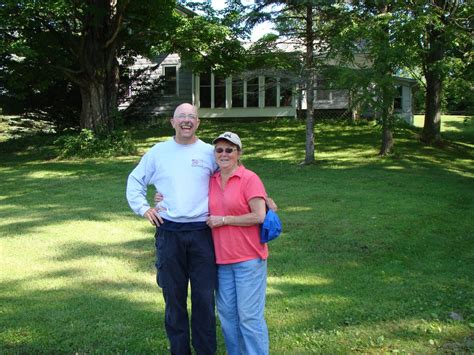Top 169 Corpses Quotes & Sayings - Page 3
Explore popular Corpses quotes.
Last updated on April 19, 2025.
We have to be aggressive when those we stick up for have no voice. I don't consider it radical to say cruelty is wrong and that animals should be respected. I consider it radical to eat corpses, put electrodes in animals' heads, make elephants live in chains in the circus, and poison animals we consider a nuisance.
Within this arena, which grows more stable night after day, generations work and love and hope and vanish. New generations tread on the corpses of their fathers, continue the work above the abyss and struggle to tame the dread mystery. How? By cultivating a single field, by kissing a woman, by studying a stone, an animal, an idea.
what are you looking for? There is no Truth. There's only action, action obeying a million different impulses, ephemeral action, action subjected to every possible and imaginable contingency and contradiction, Life. Life is crime, theft, jealousy, hunger, lies, disgust,stupidity, sickness, volcanic eruptions, earthquakes, piles of corpses. what can you do about it, my poor friend?
In southern and central Africa, tragedy roared at us, and we roared back. We shared dramas publicly, bled them on the corridors of hospitals, laid our corpses on the beds of neighbors, held our sorrows up in full light. We were volume ten about our madness and disorder, even if we were also resilient and enduring and tough.
I saw battle-corpses, myriads of them,
And the white skeletons of young men-I saw them;
I saw the debris and debris of all the dead soldiers of the war;
But I saw they were not as was thought;
They themselves were fully at rest-they suffer'd not;
The living remain'd and suffer'd-the mother suffer'd,
And the wife and the child, and the musing comrade suffer'd,
And the armies that remain'd suffer'd.
There comes a terrible moment to many souls when the great movements of the world, the larger destinies of mankind, which have lain aloof in newspapers and other neglected reading, enter like an earthquake into their own lives--when the slow urgency of growing generations turns into the tread of an invading army or the dire clash of civil war, and grey fathers know nothing to seek for but the corpses of their blooming sons, and girls forget all vanity to make lint and bandages which may serve for the shattered limbs of their betrothed husbands.
The idea that we would raise billions of sentient animals, treat them horribly, pollute our waterways with their waste, compromise the effectiveness of our antibiotics so that they grow faster, and then slaughter them with little regard to their suffering so that we can feed off their corpses, will seem to most people unthinkably cruel and barbarous - sort of in the way that we think of medieval punishments, or Europeans today think of the death penalty.
I was never young. Whoever I was then is dead. That's more of your quills. I don't want a hide full, thanks. I have always figured that you die each day and and each day is a is a box, you see, all numbered and neat; but never go back and lift the lids, because you have died a couple thousand times in your life, and that's a lot of corpses, each dead a different way, each with a worse expression. Each of those days is a different you, somebody you don't know or understand or want to understand.
Clairvoyant, Hornblower could foresee that in a year's time, the world would hardy remember the incident. In twenty years, it would be entirely forgotten. Yet those headless corpses up there in Muzillac; those shattered redcoats; those Frenchmen caught in the four-pounder's blast of canister -- they were as dead as if it had been a day in which history had been changed.
She's not dead. You didn't kill her, nor did the hunger birds, although they did their best to get to you through her. She's been given her ocean. One day, in its own time, the ocean will give her back.I thought of corpses and of skeletons with pearls for eyes. I thought of mermaids with tails that flicked when they moved, like my goldfishes' tails had flicked before my goldfish had stopped moving, to lie, belly up, like Lettie, on the top of the water. I said, 'Will she be the same?
THE AMERICAN WAY OF LIFE. Even what they eat and drink, these palefaces who don't know what wine istheir uglinesstheir pink sausage skin, horrible, they only live because there is penicillin,... the world as an Americanized vacuumtheir fake health, their fake youthfulnessthe way they use cosmetics even on corpses, their whole pornographic attitude to death.
Most people are walking around the city like corpses; they aren't alive enough to notice the trash. They come from other places and they see it as a big garbage dump. Do you want to live and work in a garbage dump? I don't. That's partly because I grew up in the most pristine environment possible - Hawaii, where it is sacrilege to leave your garbage on the ground.
Heroes and scholars represent the opposite extremes... The scholar struggles for the benefit of all humanity, sometimes to reduce physical effort, sometimes to reduce pain, and sometimes to postpone death, or at least render it more bearable. In contrast, the patriot sacrifices a rather substantial part of humanity for the sake of his own prestige. His statue is always erected on a pedestal of ruins and corpses... In contrast, all humanity crowns a scholar, love forms the pedestal of his statues, and his triumphs defy the desecration of time and the judgment of history.
Do not weep, maiden, for war is kind. Because your lover threw wild hands toward the sky And the affrighted steed ran on alone, Do not weep. War is kind. Hoarse, booming drums of the regiment, Little souls who thirst for fight, These men were born to drill and die. The unexplained glory flies above them, Great is the battle-god, great, and his kingdom -A field where a thousand corpses lie. Do not weep, babe, for war is kind.
Last winter, when so many Living joined the Dead and our prey became scarce, I watched some of my friends become full-dead. The transition was undramatic. They just slowed down, then stopped, and after a while I realised they were corpses. It disquieted me at first, but it’s against etiquette to notice when one of us dies. I distracted myself with some groaning.
One thing was absolutely certain—it was a given for Kazuo. Although he might not have particularlyrealized it, or more appropriately, perhaps because he was incapable of coming to such a realization, this was what it came down to: he, Kazuo Kiriyama, felt no emotion, no guilt, no sorrow, no pity, towards the four corpses, including Mitsuru's—and that ever since the day he was dropped into this world theway he was, he had never once felt a single emotion.
If souls survive death for all eternity, how can the heavens hold them all? Or for that matter, how can the earth hold all the bodies that have been buried in it? The answers are the same. Just as on earth, with the passage of time, decaying and transmogrified corpses make way for the newly dead, so souls released into the heavens, after a season of flight, begin to break up, burn, and be absorbed back into the womb of reason, leaving room for souls just beginning to fly. This is the answer for those who believe that souls survive death.
But we were born of risen apes, not fallen angels, and the apes were armed killers besides. And so what shall we wonder at? Our murders and massacres and missiles, and our irreconcilable regiments? Or our treaties whatever they may be worth; our symphonies however seldom they may be played; our peaceful acres, however frequently they may be converted into battlefields; our dreams however rarely they may be accomplished. The miracle of man is not how far he has sunk but how magnificently he has risen. We are known among the stars by our poems, not our corpses.
I could teach an eighth-grader in twenty minutes how to brief a case. Yet for all three years in most law schools the casebook method of learning the law is still in. The matriculating young lawyer is as qualified to represent a client with the education he has suffered through as a doctor who has never seen a patient, who has never held a scalpel in his hand and who learns surgery by having read text books about it and becomes skilled in surgery, if ever, after having stacked up piles of corpses who represent his pathetic learning process.
People "died" all the time. . . . Parts of them died when they made the wrong kinds of decisions-decisions against life. Sometimes they died bit by bit until finally they were just living corpses walking around. If you were perceptive you could see it in their eyes; the fire had gone out. . . you always knew when you made a decision against life. The door clicked and you were safe inside-safe and dead.
Henceforth the cosmos, once a swarm of blazing galaxies, each a swarm of stars, was composed wholly of star-corpses. These dark grains drifted through the dark void, like an infinitely tenuous smoke rising from an extinguished fire. Upon these motes, these gigantic worlds, the ultimate populations had created here and there with their artificial lighting a pale glow, invisible even from the innermost ring of lifeless planets.
The stories coming out of Iraq everyday - the violence, the chaos, the deaths of Americans, the deaths of Iraqis... Of course the deaths of Iraqis are not played up as much. But when they count the corpses they see women and children. We are constantly killing the people who are suspected of something. Now, in the United States or under any decent system of justice, you don't kill people on suspicion. That's what you do when you bomb a house because there are suspected leaders there. But we've been doing that again and again and the result has been a toll of thousands of civilians.
And I don't see that popular measures, self-abnegation and democracy have done anything for Man but push him further into the mud. Currently, popularity endorses degraded novels, self-abnegation has filled the Southeast Asian jungles with stone idols and corpses, and democracy has given us inflation and income tax.
She touches me The jungle lights up with incinerating fire Looks like a flaming serpent I look into her eyes I see a movie flickering Car crashes People kicking corpses Men ripping their tracheas out and shaking them at the sky I think to myself: I don’t want to survive this one I want to burn up in the wreckage Cooking flesh in the jungle
What sex is, we don't know, but it must be some sort of fire. For it always communicates a sense of warmth, of glow. And when this glow becomes a pure shine, then we feel the sense of beauty. We all have the fire of sex slumbering or burning inside us. If we live to be ninety, it is still there. Or, if it dies, we become one of those ghastly living corpses which are unfortunately becoming more numerous in the world.
When I saw photographs of children murdered by the Fascist, I felt furious pity. When the supporters of Franco talked of Red atrocities, I merely felt indignant that people should tell such lies. In the first case I saw corpses, in the second only words. . . I gradually acquired a certain horror of the way in which my own mind worked. It was clear to me that unless I cared about every murdered child impartially, I did not really care about children being murdered at all.
I think most of us can remember from our own childhood, just in the Disney cartoons, things that frightened us profoundly. For me it was Bambi, the scene when the forest was on fire. That was something I had nightmares about. I can't imagine being a little kid of eight and seeing Night Of The Living Dead with living corpses eating the flesh of living people.
The sponsors of war closely resemble the weapons they create. And smart bombs, depleted uranium, land mines, rockets and tanks, rather than protect 'widows and orphans and strangers at the gate', are designed precisely to create 'widows and orphans', to transform strangers into enemies and enemies into corpses.
All these mountains of Irish dead, all these corpses mangled beyond recognition, all these arms, legs, eyes, ears, fingers, toes, hands, all these shivering putrefying bodies and portions of bodies once warm living and tender parts of Irish men and youths - all these horrors in Flanders or the Gallipoli Peninsula, are all items in the price Ireland pays for being part of the British Empire.
Ruthless man: you begin by slaying the animal and then you devour it, as if to slay it twice. It is not enough. You turn against the dead flesh, it revolts you, it must be transformed by fire, boiled and roasted, seasoned and disguised with drugs; you must have butchers, cooks, turnspits, men who will rid the murder of its horrors, who will dress the dead bodies so that the taste decieved by these disguises will not reject what is strange to it, and will feast on corpses, the very sight of which would sicken you.
Americans tote guns because they're assertive citizens, not docile subjects of a permanent governing class. They love their military because they think there's something contemptible about Europeans preening and posing as a great power when they can't even stop some nickel'n'dime Balkan genital-severers piling up hundreds of thousands of corpses on their borders.
What are our conductors giving us year after year? Only fresh corpses. Over these beautifully embalmed sonatas, toccatas, symphonies and operas the public dance the jitterbug. Night and day without let the radio drowns us in a hog-wash of the most nauseating, sentimental ditties. From the churches comes the melancholy dirge of the dead Christ, a music which is no more sacred than a rotten turnip.
But what are a hundred million deaths? When one has served in a war, one hardly knows what a dead man is, after a while. And since a dead man has no substance unless one has actually seen him dead, a hundred million corpses broadcast through history are no more than a puff of smoke in the imagination.
Reviews are all bullshit, because they always change. When House of 1000 Corpses came out, all the reviews were awful. It was impossible to find a review better than "The worst movie ever made." And now I'll see more-modern magazines, and sometimes they'll re-review things, and I'll read this great review for it. It's the same thing with White Zombie! People talk about "Oh, White Zombie, these classic records. Why don't you do them now?" Everyone hated those records when they came out! The reviews were terrible.
My New Year's Eve is always 2 July, the night before my birthday. That's the night I make my resolutions. And this year scares the life out of me, because no matter how successful, how good things appear, there is always a deep core of failure within me, although I am trying to deal with it. My biggest fear, this coming year, is that I will be waking up alone. It makes me wonder how many bodies will be fished out of the Thames, how many decaying corpses will be found in one-room flats. I'm just being realistic.
In fact, since the accident, Mom doesn't love anyone. She is marble. Beautiful. Frigid. Easily stained by her family. What's left of us anyway. We are corpses. At first, we sought rebirth. But resurrection devoid of her love has made us zombies. We get up every morning, skip breakfast, hurry off to work or school. For in those other places, we are more at home. And sometimes we stagger beneath the weight of grief, the immensity of aloneness.
Like flies in amber, like corpses frozen in in ice, that which according to the laws of nature should pass away is by the miracle of ink on paper, preserved. It is a kind of magic. As one tends the graves of the dead, so I tend the books. And every day I open a volume or two, read a few lines or pages, allow the voices of the forgotten dead to resonate inside my head.
In the later nineteenth century, the tops of skyscrapers often took the shape of domes, surmounted by jaunty gilded lanterns; later came ziggurats, mausoleums, Alexandrian lighthouses, miniature Parthenons. These charming follies contained neither royal corpses nor effigies of gods and goddesses; rather they contained large wooden tanks filled with water.
The very people who burst with proofs of exuberant vitality could easily be taken for prepared corpses, from whom the news of their not-quite-successful decease has been withheld for reasons of population policy. Underlying the prevalent health is death. All the movements of health resemble the reflex-movements of beings whose hearts have stopped beating.
Only a tiny fraction of corpses fossilize, and we are lucky to have as many intermediate fossils as we do. We could easily have had no fossils at all, and still the evidence for evolution from other sources, such as molecular genetics and geographical distribution, would be overwhelmingly strong. On the other hand, evolution makes the strong prediction that if a single fossil turned up in the wrong geological stratum, the theory would be blown out of the water.
Labels not only free us from the obligation to think creatively; they numb our sensibilities, our power to feel. During the Vietnam War, the phrase body count entered our vocabulary. It is an ambiguous phrase, inorganic, even faintly sporty. It distanced us from the painful reality of corpses, of dead, mutilated people.
I've stood in long lines, in the rain and under the sun, just to buy a pack of butter or a box of paper napkins. I've seen mothers running after the corpses of their martyred sons, oblivious to whether their headscarves or their chadors or their stockings and shoes were slipping off or not. I won't say any more. In the light of all this, how did you expect my poetry to be joyful or, as in my recent poem, to speak of love? Even so, more than half of my poetry is joyful and these are the products of the moments when I've felt happy.
Meanwhile it's got stormy, the tattered fog even thicker, chasing across my path. Three people are sitting in a glassy tourist cafe between clouds and clouds, protected by glass from all sides. Since I don't see any waiters, it crosses my mind that corpses have been sitting there for weeks, statuesque. All this time the cafe has been unattended, for sure. Just how long have they been sitting here, petrified like this?
We know about as much about software quality problems as they knew about the Black Plague in the 1600s. We've seen the victims' agonies and helped burn the corpses. We don't know what causes it; we don't really know if there is only one disease. We just suffer - and keep pouring our sewage into our water supply.
I did some research on this a couple years ago," Augustus continued. "I was wondering if everybody could be remembered. Like, if we got organized, and assigned a certain number of corpses to each living person, would there be enough living people to remember all the dead people?" "And are there?" "Sure, anyone can name fourteen dead people. But we're disorganized mourners, so a lot of people end up remembering Shakespeare and no one ends up remembering the person he wrote Sonnet Fifty-five about



